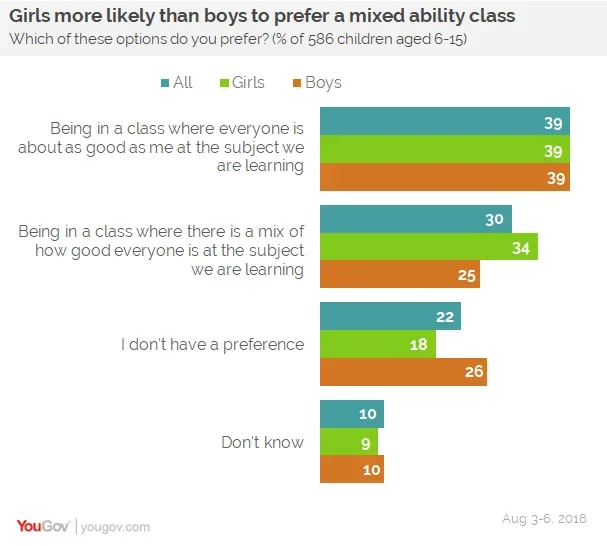Education experts say grouping by ability puts low-attainment pupils at a disadvantage: but students tend to prefer it
Grouping pupils into classes based on their previous attainment – known as ‘banding’ or setting’ – is common in schools across the UK, particularly when it comes to the teaching core disciplines like Maths and English.
However, despite criticism that banding benefits higher-attaining pupils while students performing at a lower level fall further behind, setting persists, with pressure from parents being cited as one of the major drivers of its continuation.
Four in ten students prefer being in classes where ‘everyone is as good as me’
New YouGov research demonstrates that pupils themselves are more likely to favour banded classes. We asked children aged 6-15 to say whether they prefer being in classes where ‘everyone is about as good as me at the subject we are learning’, or where ‘there is a mix of how good everyone is’.
Four in ten (39%) choose banded classes, while three in ten (30%) prefer mixed ability groups. One in five (22%) have no preference, and one in ten (10%) don’t know.
Girls (34%) are more likely than boys (25%) to prefer mixed ability classes. An equal proportion of girls and boys express a preference for banded classes (39%), with girls being less likely to say they do not have a preference (18% vs 26% of boys).

Photo: Getty







